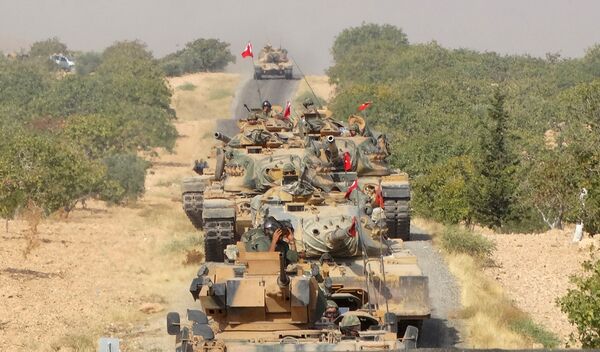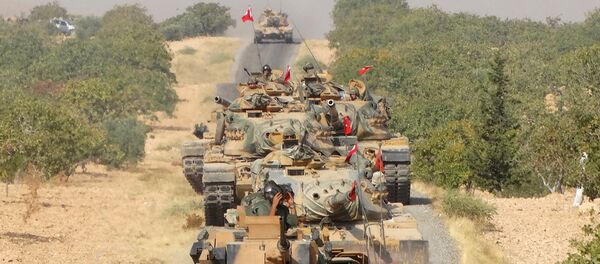Why has the US made a U-turn?
"Most likely, the White House has made a choice between the Kurds and Ankara," he observed. "In two months, key US officials, including the president, will be replaced by a new administration. Obama seems to have opted to leave office on a positive note, not fueling tensions with America's long-time ally and a key strategic partner. Turkey was given the green light to resolve the Kurdish issue even by using force."
The analyst added that extensive overtures to the Kurds could in the long run undermine Turkey's stability, if not territorial integrity. For policy makers in the US this is a bad scenario because it would lead to Washington "losing a zone of its geopolitical influence." In addition, instability in Turkey would add fuel to the already acute refugee crisis in Europe.
In the first months of the Syrian war, local Kurds initially focused on fighting against Daesh and armed rebels. "In fact, the YPG were fighting on Bashar al-Assad's side against a common enemy and did not pursue separatist ideas," the analyst noted.
The United States then readjusted the Kurdish strategy in Syria pointing them towards greater autonomy, if not independence since Washington wanted Assad to resign.
"However, in late August Turkey launched a military operation in Syria against the Kurds and the US backed Ankara, leaving their allies behind," he said.

On August 24, Turkey sent its warplanes, tanks and special forces across the border to free the Daesh-held town of Jarablus and prevent the Kurds from making more gains to the west of the Euphrates. Experts agree that the Kurds are the main target of the operation.
"The Turkish offensive is primarily targeted against the Kurds" Yevgeny Satanovsky, head of the Moscow-based Middle East Institute, said. "This is all aimed against the establishment of the Syrian Kurdistan. Paradoxically, these interests overlap with those of Damascus. This is why Syrian leadership was reserved in its protests [against the Turkish operation]. Kurdistan for Arabs, whether they support Assad or not, and Assad himself, is a bad thing."
Two days later, US Secretary of State John Kerry said that Washington was for a united Syria and did "not support an independent Kurd initiative." The diplomat further said that there was only "some limited engagement" with "a component of Kurd fighters" and underscored that the US understood "the sensitivities of our friends in Turkey with respect to this."
Turkish President Recep Tayyip Erdogan and his supporters have repeatedly claimed that the Democratic Union Party (PYD), a Kurdish party in Syria, and its armed wing, the YPG, are closely linked to the Kurdistan Workers' Party (PKK), a militant group fighting for greater autonomy, if not independence for the Turkish Kurds. Turkish authorities consider all of these groups to be terrorist organizations.




